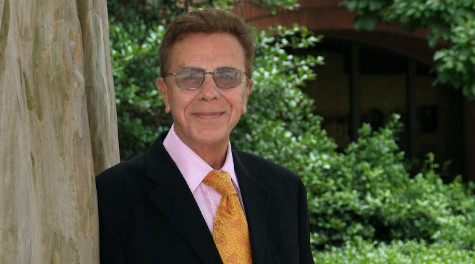Law School Professor Van Alstyne Testifies before Congress
William & Mary Law School Professor William W. Van Alstyne testified before the Congressional Committee on the Judiciary on June 8 at a hearing entitled “The President’s Request to Extend the Service of Director Robert Mueller of the FBI Until 2013.” (Video of Professor Van Alstyne's testimony is available here.)
Van Alstyne told the Committee he had no doubts about the constitutionality of the proposed legislation, which would extend the current term of the Director of the FBI for an additional two-year period. “[I]f you are individually satisfied with the current director’s discharge of his duties … enactment of the pending bill is desirable as well as wholly constitutional,” he testified. “The committee should have complete confidence in the pending measure as well within its constitutional discretion, and promptly report it for debate and vote in the full Senate.”
Van Alstyne was appointed Lee Professor of Law at the Marshall-Wythe Law School at the College of William and Mary in 2004. He earned a B.A. magna cum laude from the University of Southern California and a J.D. magna cum laude from Stanford Law School, where he was Articles and Book Review Editor of the Stanford Law Review. He previously held appointments at Duke Law School and Ohio State University Law School.
Van Alstyne is widely regarded as one of the nation’s most preeminent constitutional law scholars. His writings have appeared in the principal law journals in the United States, with frequent republication in foreign journals. His work has been cited by numerous courts, including the Supreme Court. In January 2000, the Journal of Legal Studies named Van Alstyne in the top forty most frequently cited legal scholars in the U.S. Past National President of the American Association of University Professors, and former member of the National Board of Directors of the A.C.L.U., he was elected into the American Academy of Arts and Sciences in 1994.
Professor Van Alstyne has appeared before Congress more than a dozen times, in numerous hearings before Senate and House Committees, to offer commentary about legislation affecting the separation of powers, war powers, constitutional amendments, impeachments, and nominations to the Supreme Court.
